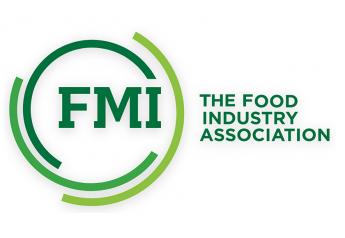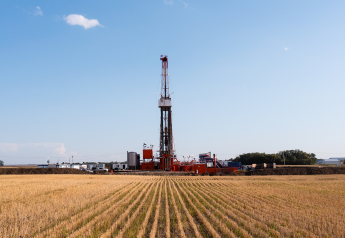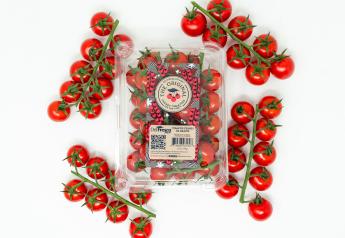Aidan Mouat on Hazel Technologies Inc. finalizing $70 million in Series C financing — Part 2
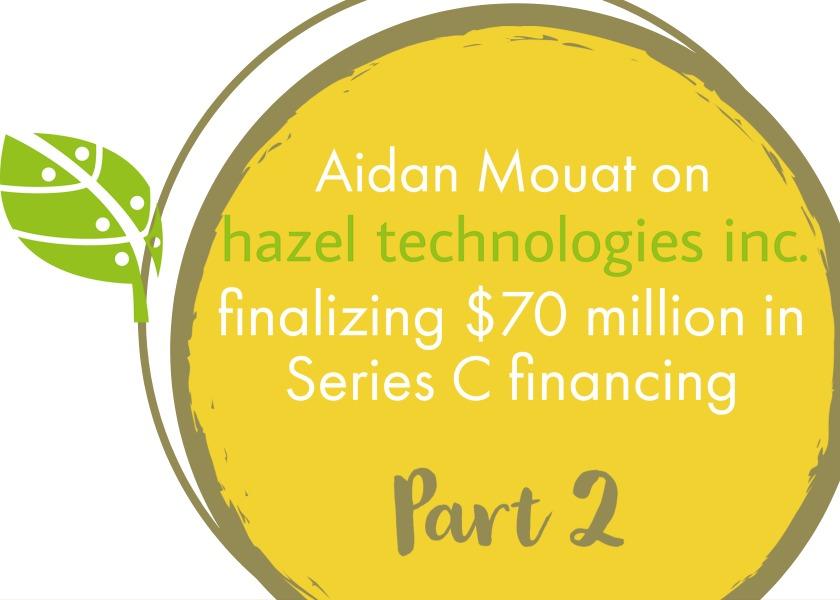
The Packer: As you think about Hazel Technologies role in eliminating food waste, it is a big focus now, isn’t it?
Mouat: I would have to argue yes; I think that’s also a market response question. I think that we can’t reshape the world just in our own image, we have to be doing something that bridges the gap between the technology we want to put out there and the needs of the customer. And I think it’s a really important time to be engaging with the broader market, to be reducing food waste, doing it in an ecologically sustainable manner. And I think the other interesting frontier, which is a conversation that we’ve started to have this year, is measuring impact. It turns out that people were not measuring impact in very meaningful ways. But now that’s becoming more and more important, people want to see sustainability reports. People want to know that on the consumer side, that they’re engaging in supply chains that are increasingly more sustainable. And our customers and their customers are obviously responding to that market. I think you’re seeing kind of the whole world evolve together. We’re a part of that conversation.
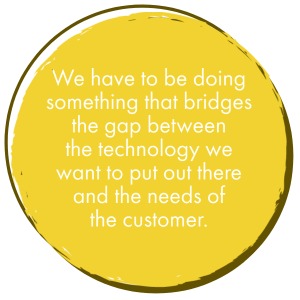
The Packer: Where do you see your company in five years, perhaps? And will it be a public publicly traded company at some point?
Mouat: I’m not sure I’m allowed to answer that question. I think there’s a lot of SEC stuff around that. As I can’t make any offerings for sale, I think we’ll take whatever market option makes the most sense for the continued growth of the company. And I think it’s unlikely that we would want to dip back exclusively into the well of private venture capital. I think we’ve accomplished a lot already. And I think part of the theory behind this capitalization is this should get us to where we want to be in terms of profitability, in terms of market access.
The Packer: As you look to the next few years, how do you see the company evolving? You’re talking about globalization of your product; how do you see how do you see that happening?
Mouat: To put the series C (fundraise) in context, we’ve got a very strong domestic presence. But we also have been growing in international market segments for the last couple years as well. We’re doing trade in Mexico, in Peru, and Chile, New Zealand, South Africa, a couple other places as well. My philosophy on it is, if you’re in the produce industry today, whether you’re a technology provider, or an actual produce grower, seller, distributor, retailer, or whatever, by definition, you are (a kind of) international business. I think it’s pretty rare to see anybody of any scale that doesn’t have supply chains across international boundaries. We always knew we’d be playing in that world. And part of the philosophy and product design that we engage in is developing solutions that are highly modular, highly effective, robust to a wide range of conditions, don’t require changing operations, don’t require unnecessary levels of packaging or engineering. And that’s with a global perspective in mind, right? Because resource settings are different, I want to have the same product working in Latin America that I do in Southeast Asia, or in Africa, or wherever. We’ve sort of positioned ourselves for that growth paradigm. And now what we’re doing is building our team internationally. We’re expanding that market access, we’re increasing our portfolio of product offerings, with the intent of reaching those international markets as early as possible, and then following up with more and more product delivery once we’ve sort of built the business into each of those domains. And I think it’s — I don’t think I’m exaggerating when I say that over the next five years, I think our most important business horizon is our international market development phase. And the idea is that by this time in 2025, we would expect to be fully commercialized in 15 to 20 countries. And that would give us coverage of every major agronomic regions on the planet, North and South America, North and South Africa, Southeast Asia and Oceania. So that’s the plan. That’s the game plan.
The Packer: For your product, for those maybe that aren’t familiar with your product, do you find the reception best from the supplier side or from the retailer side or the middle market? Where exactly do you see the most enthusiasm, perhaps, for what you do?
Mouat: That’s a great question. For sure, it’s more so that I would say we see different types of enthusiasm. I think the most enthusiasm I get is the consumer response. And they go, when can we use this? OK, we’re working on it. In the next couple of years, I think you’ll see a consumer household product, which will be a lot of fun. But, within our current customer sets, I think there’s a lot of
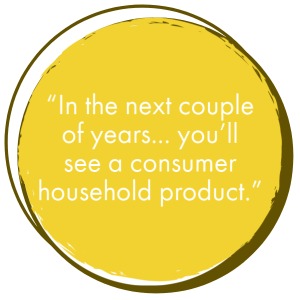 enthusiasm on both sides of the supply chain. I think we’re an unusual company, insofar as we deliberately created a product that works today, with supplier operations. The attitude is oftentimes we got this big sexy machine, but you’re going to have to work with us to build a new supply chain. And that’s how we’re going to serve as your market. And I got to say, historically, I’m not impressed by that, by the output of those types of systems. We said, all right, well, let’s try to make a product that services the supply side today. We want to be able to integrate seamlessly with that without making (anyone) change anything. And at the same time, we want to have a product that’s cost effective and gives ROI. I mean, obviously, you have to have a functioning technology. And that’s another problem in this market with the amount of snake oil that gets sold. So that’s, I think, why we got rapid and enthusiastic supply side entrenchment. We have customers with us year over year now for five or six years. The majority of (customers) have really high retention. Those relationships are very important to us. But what’s also been cool is leveraging that position in the market, and leveraging our visibility, with sort of the venture capital public set, doing press and that sort of thing, into solving retail-based problems. Retailers want to see their supply chains work, they want to see them work sustainably, they want to reduce their waste, they also want to make sure that the consumer is engaging with that process, through marketing, branding, etc.
enthusiasm on both sides of the supply chain. I think we’re an unusual company, insofar as we deliberately created a product that works today, with supplier operations. The attitude is oftentimes we got this big sexy machine, but you’re going to have to work with us to build a new supply chain. And that’s how we’re going to serve as your market. And I got to say, historically, I’m not impressed by that, by the output of those types of systems. We said, all right, well, let’s try to make a product that services the supply side today. We want to be able to integrate seamlessly with that without making (anyone) change anything. And at the same time, we want to have a product that’s cost effective and gives ROI. I mean, obviously, you have to have a functioning technology. And that’s another problem in this market with the amount of snake oil that gets sold. So that’s, I think, why we got rapid and enthusiastic supply side entrenchment. We have customers with us year over year now for five or six years. The majority of (customers) have really high retention. Those relationships are very important to us. But what’s also been cool is leveraging that position in the market, and leveraging our visibility, with sort of the venture capital public set, doing press and that sort of thing, into solving retail-based problems. Retailers want to see their supply chains work, they want to see them work sustainably, they want to reduce their waste, they also want to make sure that the consumer is engaging with that process, through marketing, branding, etc.
As we gain more visibility and more traction, as we co-launch more SKUs with big providers, as we do more pilots and more commercial expansion with the retailers themselves, we kind of bring all of those different segments together seamlessly into one piece. And that’s how we think of it. I always refer to it as the holistic supply chain, breaking down these differences, so that we can provide end-to-end protection throughout the entire supply chain that delivers real value to every market segment. And because that’s always been the challenge in this type of technology, that’s where we try to focus.
The Packer: You mentioned that people are interested in telling their sustainability story and measuring what you save. What about messaging to the consumer with the fruit that’s treated with Hazel technology? Is that what retailers want? Or do suppliers want to do that, too? And how do you fit in with that type of conversation?
Mouat: I think we’ve got some tangible examples of that already; I think you got a couple of different approaches. One is with Mission Produce, the world’s largest hass avocado distributor. In essence, we co-launched an SKU together called AvoLast, where it’s kind of a combination of their unquestionably best in class avocado program and then our unquestionably best in class technology program, and you put those together, and you get avocados that last longer and better. And that’s something that’s being marketed directly through the retailer, they want the retailer to take up that banner and say, this is our AvoLast, you are paying for the avocado of tomorrow.
And I think that’s a pretty strong approach. Another approach is that we did a project with WP Produce and Kroger. And there’s some of these really cool bags of Desbry Tropical Avocados that are actually labeled with “Protected by Hazel Technologies.”
That’s been a really cool program because A) it has been getting bigger traction (with) Kroger, so that program is expanding. B) They won an award pretty recently for best innovation in packaging, and we were a part of that. And then, C) I think what’s really important is that it actually increased their business. I don’t have the number in front of me at the moment, but I think it was a 40% increase year-over-year in sales.
And that’s what you want to see. Where’s that coming from? Well, it’s definitely coming from higher quality. It is definitely coming from a better eating experience. But I think it’s also a consequence of that marketing and that brand. I think consumers want to be a part of that process, of that conversation. And giving them an opportunity to do so by being selective, not only about the type of food they’re buying, but about the supply chain technology that goes into it, is an unprecedented level of consumer interaction with these types of foods. I think that’s a really cool role.
The Packer: You’ve got a technology that’s kind of in the news, it’s kind of cutting edge — and not having trade shows, I’m sure, is not the best for any growing business, including pretty much every business. But how have you, in the past year, continued to get your message out there? And have you started to travel again or to be a part of trade shows yet? What’s your sense on the effect of COVID-19 and how your company has dealt with that?
Mouat: I think it is a great question because what you’re really asking is, what have you had to do differently, right, over the last year or so. On the one hand, it’s nice, because we have a bit of a resilient business. Like trade shows go down — now, that’s unfortunate, but my team is already hustling, right? By the time we get the trade show, we already have the meetings, we already know who we’re talking to. And we put in that same amount of effort, but now we don’t do it in that trade show context. And where I think it got complicated for a while, and to some extent, still is, is the comfort level of the industry, say virtual meetings, and it’s challenging to try and do the same kind of business over Zoom that you would do in a conference room or a bar. It definitely changes the way you have interactions. But I would say that we were very quick to pivot. And we’re back traveling, but we’re traveling much more in a much more targeted fashion. Very few, like, sprawling road trips for 10 days, while we kind of hit every farm along the Central Valley corridor kind of thing. Now, it’s like now we’re going to call ahead, we’re going to have our meeting, we got these big players that we’re going to meet with, sometimes we’ll take a couple of meetings around those. And that’s nice to be able to do. But we’re also establishing new infrastructure. For example, we’ll be opening up the Central Valley office within the next three, four months, I think. And so that then puts salespeople directly in California, I’ve already got people in Pacific Northwest, I’ve got people in California, we’ve got people in the Northeast, we’ve got people located now in Chile, and Peru, and so forth. And I think that’s the big learning for us was to cut down on the travel by localizing, by creating regional positions and saying, OK, we want these people to service these customers, they’re going to know them, they’re going to be right down the street from them. And that’s a really valuable way to have those types of interactions. I think where it gets complicated, particularly, and this is the sort of thing that really tradeshows were great for is trying to have these complex multi-part meetings where like, let’s say we’re trying to set up a product line between a supplier or a retailer, we have to get all those folks to the tables; here’s what’s happening. Here’s how we want to change, here’s who we are, here’s what we do. That process was going a lot more smoothly the days when you can still do that. But, looking into the crystal ball, right, PMA is in New Orleans this year. And that’s always a big draw. And I’m vaccinated. And most of my team, I think, at this point is vaccinated. I think by October, I would be surprised if we were less than 95% vaccinated. Is there always a risk? Totally. Are there opportunities to justify the amount of business you will do under that risk? Yeah, as long as we approach that question as safely and with as much caution as possible.
The Packer: Finally, there is so much interest in investment in this area of food waste. I mean, how do you differentiate your product, what you’re doing maybe compared to other competitors out there? You find a way to do it, obviously, in a successful way. What’s, I guess, if you had to distill your message, like this is what your value (is) to the trade? How would you kind of pitch that compared to maybe other competitors out there?
Mouat: It’s a great question. There’s kind of a, there’s a tactical answer, I suppose. And then there’s kind of a broad vision answer. And the tactical answer is not important, which is simply, the sort of the tagline or official tagline that I love to use is, we’re the solution for today’s operations. There’s a lot of people out there, they’re promising you’ll get more shelf life, you do this, you do that, oh, by the way, we’ll be able to cost you a million and a half. And when you’re done, you won’t be treating but 10% of your total product line. I got a customer comes in, and they say, we’re doing a million cases this summer. We want you guys to do all of it, then we’re doing that business this summer without a problem, and that’s, that’s a huge difference. And it’s more than that, if it goes down into having my people, both technical and sales, understand the customer’s operation, and not come in and say you got to replace all this stuff, — no, just use this product in addition to what you’re doing, and you can evaluate cost benefit later, but you will see the benefit. I think that’s the most important thing when you see the benefit immediately. And they go cool, that sounds great; we don’t have all these hidden operational costs. So that’s kind of the tactical answer.
For the big brain blue sky thinking, I think it’s about this, this capacity that we’re developing, to proliferate through every segment of the supply chain. And I’ll give you a bit of an example. OK, let’s say you’re a grower, and you want to use the technology, and you do a couple of pilot tests, and you go, OK, I think this works. But do you ever want to stop there? You want to have your questions answered all the time? Is this working, what is it doing? We provide all kinds of services related to technical modifications, whether it’s in our labs, or whether it’s in the customer’s facility, by scientists who are working on things like that. We developed a whole new technology we launched last year called Datica, which is actually a sensor technology (that) allows continuous monitoring of produce environments. And we can read out on shelf life in real time, by monitoring volatile organic compounds. You throw that in as a new layer. And now we’re adding protection That’s not just point of application. But now we’re actually getting informatics and we’re saying, this is what it’s doing. This is what you can tell your customers, you can go to your retailers, you can say check out how much better this quality (is). If we start to link those pieces together, you start to see the map that is the holistic supply chain. And you just don’t really, I don’t think there’s any other companies that are out there doing that, because they’re mostly point of application where you build a wash line. That’s one of the applications you could try to track that supply chain, but it is kind of one and done. We view ourselves as participants in the entire supply chain.



